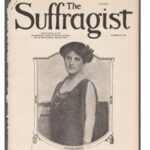Bettina Hitzer (Institute „History, Theory and Ethics of Medicine“, Magdeburg) and Thomas Lindenberger (Hannah-Arendt Institute for Totalitarianism Studies, Dresden) (Web)
Time: 08.-10.01.2025
Venue. Otto-von-Guericke Univ., Magdeburg
Registration by: 16.12.2024
Program (PDF)
Panels
– Adoption and Welfare State Governance
– Adoption and (Post)Coloniality
– Adoption and political repression and (post)warfare
– Importing Adoption, Exporting Children: Adoption in (Post-)Colonial Contexts
– Taking Children: Political Interests and Illicit Networks
– Care Meets Racism: South Koreans into Europe
Adoption is a controversial issue, more so today than ever before. Criticism is aimed at all facets of this “kinship by design” (Ellen Herman, 2008). The heated debate is not only concerned with the conditions determining whether adoption is in the best interest of the child. The family, social and population policy logic behind the concept of adoption is also increasingly being called into question. Adoption as a humanitarian intervention is ever more challenged. Reappraisal projects initiated by activists are shedding light on the colonial and post-colonial interests that often lurk behind the adoption project – with all their potentially brutal implications that disregard the rights of children and their biological parents.
The conference will focus on the following aspects of adoption policies:
– adoption as an instrument of those in power to weaken and destroy family ties and social resources of political opponents and their milieus, both in domestic and international conflicts.
– adoption as a means of disempowering and disintegrating marginalized social groups and ethnicities in colonial and post-colonial societies, but also in modern welfare state systems.
– adoption and the politics of transitional justice in post-autocratic transformation processes.
– the significance of international adoptions for networks of humanitarian aid and care and their relationship to political and social inequalities and (postcolonial) power asymmetries. Continue reading

 Netzwerk Feministische Rechtsgeschichte
Netzwerk Feministische Rechtsgeschichte  Aspasia: The International Yearbook of Central, Eastern, and Southeastern European Women’s and Gender History
Aspasia: The International Yearbook of Central, Eastern, and Southeastern European Women’s and Gender History  Institut für Historische Sozialforschung
Institut für Historische Sozialforschung  STICHWORT. Archiv der Frauen- und Lesbenbewegung
STICHWORT. Archiv der Frauen- und Lesbenbewegung